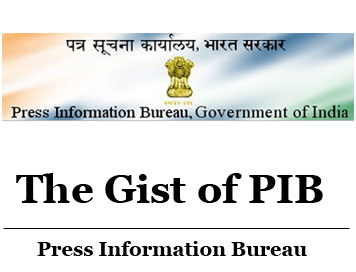(THE GIST OF PIB) Poshan Bhi Padhai Bhi

(THE GIST OF PIB) Poshan Bhi Padhai Bhi
(May-2023)
Poshan Bhi Padhai Bhi
- The Ministry of Women and Child Development is launching ‘Poshan Bhi Padhai Bhi’, an ECCE (Early Childhood Care and Education) program.
Key highlights:
- The Ministry of Women and Child Development is launching “Poshan Bhi Padhai Bhi” (on 10th May 2023), an ECCE program to ensure that India has the world’s largest, universal, high-quality pre-school networks envisaged under the National Education Policy (NEP, 2020).
- As per the guidelines of the NEP, with Poshan Bhi Padhai Bhi, the government has taken up the goal of strengthening the foundations of the country’s future generations.
- Children’s development in every domain will be targeted – cognitive, development, physical and motor development, socio-emotional-ethical development, artistic/cultural development and the development of communication and early language, literacy and numeracy.
- All the states should follow the ECCE task force recommendations for a play-based, activity-based learning pedagogy, targeted specifically at the developmental milestones of 0-3-year-olds as well as 3-6-year-olds, including special support for Divyang children.
- Through the ‘Poshan Bhi Padhai Bhi’ ECCE policy, every child would be provided with two hours of high-quality preschool instruction on a daily basis.
- To give a push to ECCE, anganwadi centres will be reimagined and recalibrated to focus not only on the nutritional aspect of children and mothers but also on early learning of children under 6 years, particularly those under 3 years, which has proven to be a foundation for a child’s development. It has been found that 85% of the brain development is achieved by the age of 6 years.
CLICK HERE TO DOWNLOAD FULL PDF
CLICK HERE TO DOWNLOAD UPSC E-BOOKS
Study Material for UPSC General Studies Pre Cum Mains
Get The Gist 1 Year Subscription Online
Click Here to Download More Free Sample Material
<<Go Back To Main Page
Courtesy: PIB


